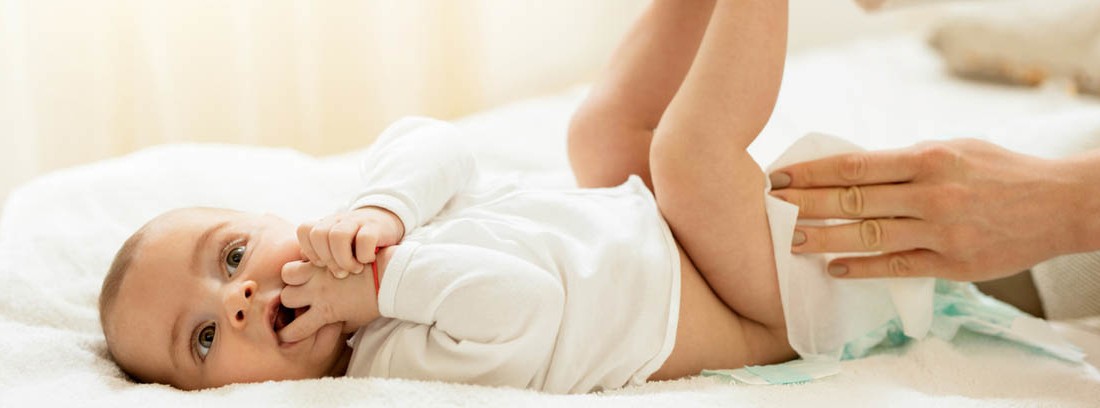Diarrhea in the baby: what is the best treatment

Diarrhea in the baby is defined as the increase in the number of daily bowel movements or the decrease of its usual consistency (more liquid stools). Each child passes bowel movements at a certain rate (several times a day, daily, or every two or three days) and with a different consistency. It can be caused by an infectious gastroenteritis or produced by bacteria such as, in which case the pediatrician may indicate the taking of a antibiotic. On the other hand, if the pediatrician suspects a allergy or intolerance will perform the appropriate tests to diagnose the baby and will remove the food causing the symptoms from the diet.
How can I prevent my baby from getting dehydrated from diarrhea?
In the case of diarrhea in the baby from infectious gastroenteritis the most important thing is to replace the fluids and salts that the baby loses through the stool and to offer correct nutrition to help beat infection.
The best way to prevent dehydration is to offer fluids to your baby. In cases of diarrhea the best are solutions of rehydration oral (oral serum) that they already sell prepared in the pharmacy. The baby will continue with his normal diet, without restrictions or milk changes; switching to lactose-free milk is not advised without pediatrician prescription, or eliminate dairy from the diet, do not prepare diluted bottles or an astringent diet (it has very few calories and nourishes the child poorly).
In the most severe cases of dehydration, it may be necessary to admit the infant and administer an IV.
Should I stop breastfeeding if she has gastroenteritis?
The breastfeeding baby should continue to breastfeed (she will probably breastfeed more frequently to replace the fluids she loses), as she will benefit from the defenses that her mother passes through her milk to overcome the infection. If the child reject oral serum you have to give him another type of liquids like water or milk. Isotonic sodas or sports drinks are not recommended because they are high in sugar and low in salts; this composition does not hydrate the child well.
In fact, to prevent infectious gastroenteritis in infants it is effective to hygiene measures in nurseries and in the family if someone is infected. There are specific vaccines against one of the viruses that most cause diarrhea in babies (rotavirus)
Stool of the breastfed child
During the first weeks of the newborn the liquid stools and color between yellow and green; sometimes some lumps can be seen. Stool in breastfed children are liquid or pasty throughout the breastfeeding period and may have a bowel movement each time they breastfeed. Children who drink artificial milk They usually do the most consistent bowel movements and less frequent. Both situations are normal and are not diarrhea, the baby will look good, will have no signs of dehydration, vomiting or fever.
When should I consult the pediatrician.
First of all, remember that the use of antidiarrheal medications is not recommended without the prescription of the pediatrician.
- If the diarrhea lasts more than 2 or 3 days
- When many bowel movements a day and are accompanied by vomiting
- If in the stool appear blood, pus, or mucus
- If the baby has fever
- If the baby completely refuses food and fluids
- If the baby has signs of dehydration: dry skin, mouth and eyes (there are no tears or drool), he is pale, his pulse is very fast and he urinates little.
- If you have questions about the child's health status and how to treat it
You have doubts? Sign up for Savia, MAPFRE's digital health services platform, and speak with a pediatrician so that he or she can help you with the health of your sons or daughters. You can also buy one at the best price and with the best specialists.
SIGN UP FREE
Dra. Esther Martínez García Pediatric Specialist
(Updated at Apr 13 / 2024)